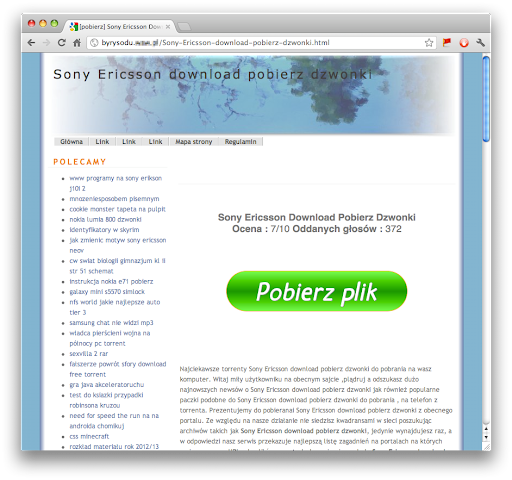Tuesday, March 06, 2012
Web hosting services that are available without payment can be great! Many of these services have helped to lower costs and technical barriers for webmasters and they continue to enable beginner webmasters to start their adventure on the web. Unfortunately, sometimes these lower barriers (meant to encourage less techy audiences) can attract some dodgy characters like spammers who look for cheap and easy ways to set up dozens or hundreds of sites that add little or no value to the web. When it comes to automatically generated sites, our stance remains the same: if the sites do not add sufficient value, we generally consider them as spam and take appropriate steps to protect our users from exposure to such sites in our natural search results.

If a hosting service that's available without payment begins to show patterns of spam, we make a strong effort to be granular and tackle only spammy pages or sites. However, in some cases, when the spammers have pretty much taken over the web hosting service or a large fraction of the service, we may be forced to take more decisive steps to protect our users and remove the entire web hosting service from our search results. To prevent this from happening, we would like to help owners of web hosting services by sharing what we think may help you save valuable resources like bandwidth and processing power, and also protect your hosting service from these spammers:
- Publish a clear abuse policy and communicate it to your users, for example during the sign-up process. This step will contribute to transparency on what you consider to be spammy activity.
- In your sign-up form, consider using CAPTCHAs or similar verification tools to only allow human submissions and prevent automated scripts from generating a bunch of sites on your hosting service. While these methods may not be 100% foolproof, they can help to keep a lot of the bad actors out.
- Try to monitor your hosting service for other spam signals like redirections, large numbers of
ad blocks, certain spammy keywords, large sections of escaped JavaScript code, etc. Using the
site:operator query or Google Alerts may come in handy if you're looking for a simple, cost efficient solution. - Keep a record of signups and try to identify typical spam patterns like form completion time, number of requests sent from the same IP address range, user-agents used during signup, user names or other form-submitted values chosen during signup, etc. Again, these may not always be conclusive.
- Keep an eye on your webserver log files for sudden traffic spikes, especially when a newly-created site is receiving this traffic, and try to identify why you are spending more bandwidth and processing power.
- Try to monitor your web hosting service for phishing and malware-infected pages. For example, you can use the Google Safe Browsing API to regularly test URLs from your service, or sign up to receive alerts for your AS (Autonomous System number) .
- Come up with a few confidence checks. For example, if you're running a local Polish web hosting service, what are the odds of thousands of new and legitimate sites in Japanese being created overnight on your service? There's a number of tools you may find useful for language detection of newly created sites, for example language detection libraries or the Google Translate API v2 .
Last but not least, if you run a web hosting service be sure to monitor your services for sudden activity spikes that may indicate a spam attack in progress.
For more tips on running a quality hosting service, have a look at our previous post . Lastly, be sure to sign up and verify your site in Google Webmaster Tools so we may be able to notify you when needed or if we see issues.


